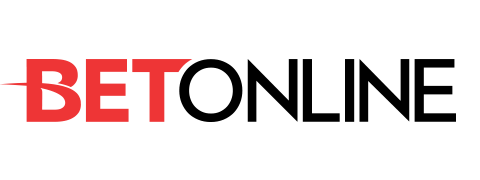We found out from the regulars how often they resort to hero calls and how they choose suitable situations. Besides the feeling of superiority over your opponents, what can a successful hero call bring, and how can an unsuccessful attempt affect the game? In general, we tried to figure out how not to lose money on hero calls.
Or at least, how to lose less than usual.
Yura Joke703 // t.me/Joke's house
Hero calls are a very interesting topic, but most likely 90% of people who play “okay” cannot beat their stakes precisely because of these “hero calls”.
Most times, we encounter hero calls on the river, where 90% of the field is underbluffing (do we remember that when our opponent bets the pot, we want him to have 33% bluffs?). In order to find these 33%, we need to have a very good understanding of which hands without blockers we want to add to the flop bet so that we have the required number of bluffs on the river. This is incredibly difficult to do, and in general, it’s not very clear why. As a result, we get a situation where an ordinary, standard mid-stakes reg will bluff with all the good and even average blockers, but will still only have 15-20% bluffs.
It turns out that by making a hero call, we lose a lot of money! Yes, sometimes we guess right and rejoice at “how well I read my opponent,” but, in general, we lose money with every such call.
To learn how to make profitable hero calls, you need to understand runouts, very, very, very closely track field trends and find that same opponent on tilt. In any other case, most of the time, it will be money down the drain.
When all the stars align and you make this “profitable hero call,” then, of course, the size of your reproductive organ increases significantly, and a good mood immediately makes itself felt.
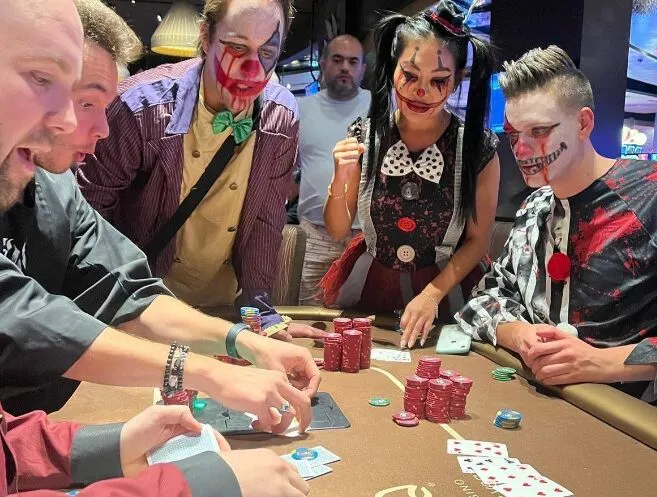
Hero calls offline are a whole different story. I played midstakes in America for 10 months and during that time I saw three bluffs in the pot on the river:
The first one is from top reg Dylan Weissman. It was never a bluff, since his hand looked very believable – just ideal for a bluff.
The second one is from a super strong online reg from Japan, also with an ideal hand for bluffing. By the way, my friend opened it xD
The third one is from a fish, who later admitted that he didn’t look at the 4th card and decided that he would win this hand “anyway” xD
The most important rule of hero calling, and poker in general, is the ability to ask yourself the right questions and answer them HONESTLY. If you have weighed all the factors and, in your opinion, your opponent has more than 33% bluffs on the river (if he bet the pot), then calmly press the call. It's important that your hero calls don't turn into the famous "fuck it calls."
Here's one of my favorite hero calls of late :D
It took me about two seconds to call the river 😅
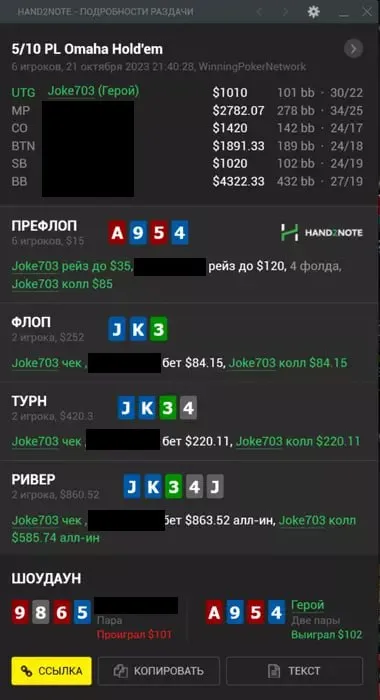
Fedya Lorem // t.me/LoremCDMX
My chat honestly thinks that I make hero calls more often than necessary. However, an analysis of my database suggests that I most likely do not call often enough. Simply because sometimes I forget to think about distribution altogether.
In general, the conditional -high is a combination you can proudly go to the showdown with, so in order to surprise someone, now you need to have at least -high. In most cases, when you want to press such a call, it will be, to some extent, (dis)respect for the opponent. We believe that he has reached into our pockets with both hands, and it’s time to defend ourselves. Essentially, a hero call means that the opponent decided to outplay us because he thought that we would overfold, and in response, we decided not to fold on principle.
In some parts of your range, there is a desire to call, simply because “I don’t believe you,” but the situation looks somehow wild. In this case, I long ago found a solution for myself – you can simply not show the hand on the stream and, if anything happens, quickly switch to show the showdown, with words like “so, well, here I called the check-raise of the turn and the push of the river on 8-high and won. .." If you didn’t win, then you can simply not show it...
Certainly, bad decisions, especially several in a row, can cause a snowball in which I will accumulate tilt, (un)willingness to make expensive decisions, and risk relegation. In a good run, you can sit, think, make a difficult call, and not worry about the outcome, but in a bad run, even simple decisions will take a toll on your nerves.
Since I don't show up often enough, my biggest bluff catches are quite boring.

Well, for balance, I’ll show you an unsuccessful hero call:

Kostya gambler14 // who?
Hero calls are, of course, beautiful, but they don’t bring money over time. And so, I try to make them less often.
I’m a very boring player in this regard, so I choose a situation for hero-calling so as not to block the main natural bluffs, and in the most suitable line for this. 😅
Most often, I don’t need to persuade myself to call. If you have to persuade yourself to hero-call the river, then most likely you have built your range incorrectly on previous streets, and you have a huge hole in your strategy.
If we have a bluff catcher, then we need to clearly understand whether we have a hero call against our opponent’s range or not. In a vacuum, we are interested in the opponent’s re-bluffs in a certain line. In the main poker formats, there are still people who bluff with some lines and sizes, and value bet with completely different ones. It is much easier to call such people, but it seems to me that this no longer fits the definition of a hero call.
I still react too emotionally to my bad hero calls. So emotionally, that it can affect the rest of the session. In general, I should only react when my opponent's hand surprises me – this means that I completely miss the mark on my opponent's range in a particular hand. Because of this peculiarity of mine, I try to design ranges as best as possible on early streets, so that by the river the number of difficult decisions tends to be zero) Here I completely accepted myself, so I work with what I have 😄
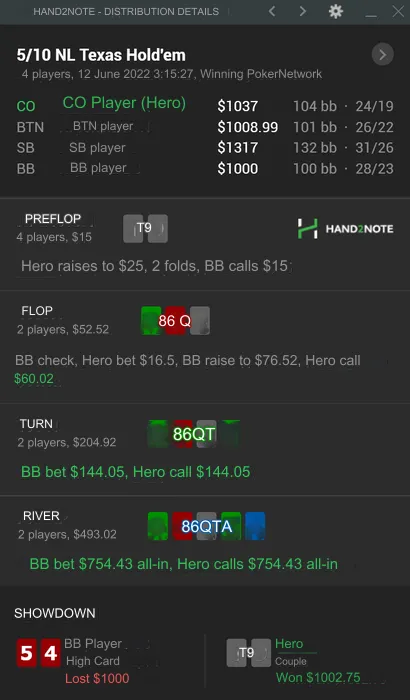
In live poker situations, things are more complicated with hero calls, because people play according to a different strategy than online. What would be a hero call online will often be a call with a margin in live poker situations. People value bet too lightly there. As for the embarrassment due to failures, I’ve been playing for too long to think about that 😅 Plus, when you play with your own money, you’re not ashamed.
Anton Matt_Monica // Bullfighting
There is no need to persuade me to make hero calls – I love this business. When in doubt, I almost always choose to test my assumptions. I would say that I hero call much more often than average.
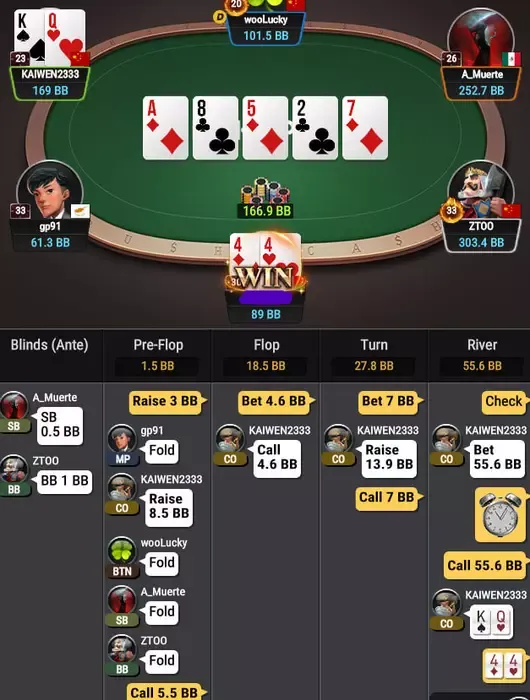
I select a situation for calling only based on how the board changes and what assumptions I have made about my opponent’s habits based on past hands.
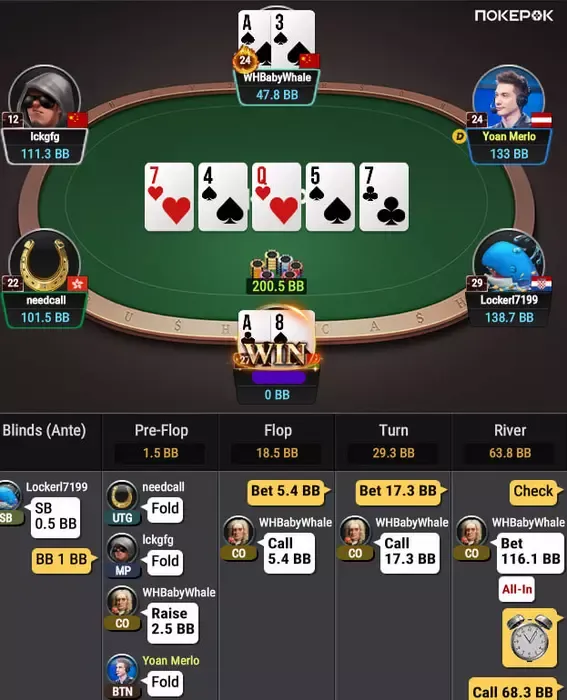
Unsuccessful hero calls do not affect my game, except that they can tone me down, I will pull myself together and begin to concentrate better. But a successful hero call can lift your spirits.
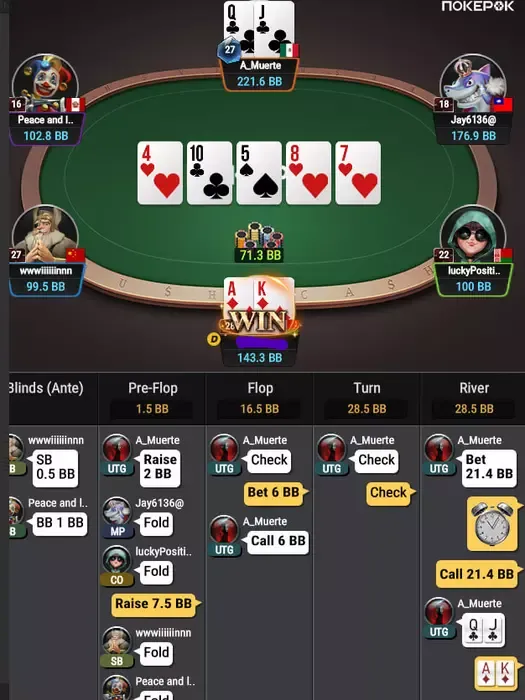
Bogdan Panda_gerrard // Poker Star
It varies from time to time, but in general I strive to avoid making hero calls, simply because it is negative.
And it seems to me that it is generally impossible to make the ideal number of hero calls, because how can one understand how many of them need to be made in reality? :) If we are not talking about high limits from NL500 and up, then opponents are clearly not bluffing GTO. Yes, someone can bluff, but they are very few. Usually, at medium and low stakes, opponents will always have a bias towards the tight side.

Therefore, I think it all comes down to your knowledge and understanding of the field. There are spots where there are bluffs – for example, we 3-bet with SB against BTN/CO, bet 33% of the flop and check the turn. In such a spot, of course, they can put two barrels on you as a bluff. Or vice versa – we overbet the river with an uncapped range and a raise or push comes at us. Well, what kind of bluffs could there be? :)
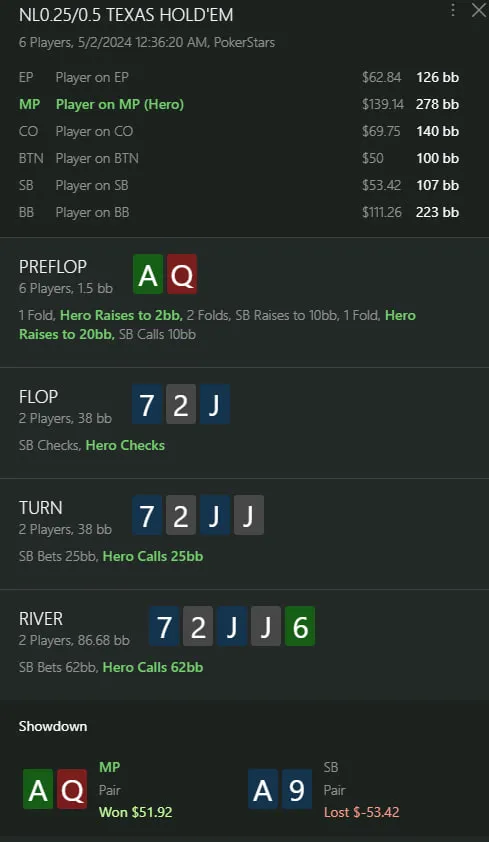
The desire to punish your opponent is already something about tilt and has nothing to do with the topic of hero calls. If you want to expose your opponent to A-high with conditional AK, then I take into account two main points:
- Are there any bluffs in this spot?
- Is the opponent capable of bluffing based on stats or notes? If nitty player is against us, then we don’t have to look at the board and everything else :))
Probably, a lot depends on a person’s character, but I have never had the fear of doing something at the table because of someone else’s opinion or the risk of losing money. I also never had to convince myself to make hero calls. If we are talking about an A-game, then you simply weigh the pros and cons and make a decision.
But to make a hero call, which you understand that you should not do, then make sure of it and think about what an undisciplined idiot you are – this has often happened to me, has happened, and will happen. The main thing is to just work on yourself so that there are fewer such situations and more discipline.
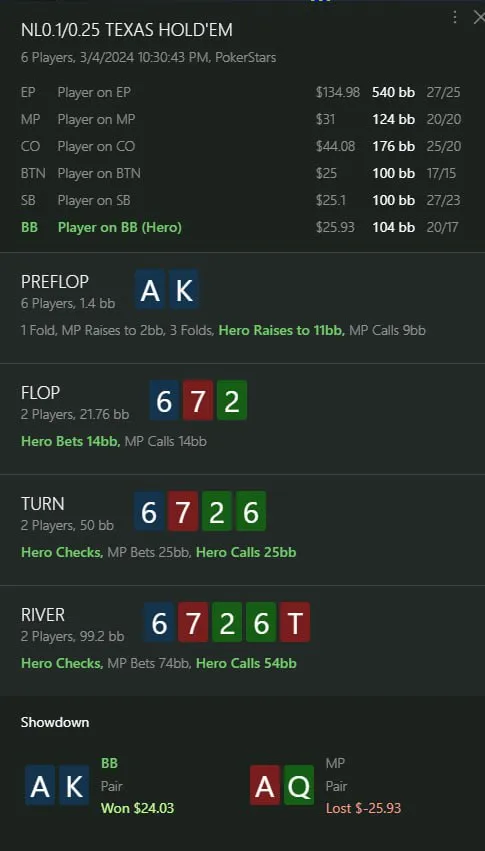
A successful hero call can, perhaps, amuse the ego – rejoice for a minute, throw it into the chat, saying, “Look how I can do it,” and, in general, that’s all. But an unsuccessful one can lead to tilt and then all is lost.
I looked for examples of hero calls (successful ones, of course 😂). But in all these hands there was information that the opponent could bluff, and in such spots he has bluffs. In general, if you don’t make these calls, it won’t just get worse, but maybe it will get better.
Brdz1 // t.me/A-Game
I specialize in hero-folds, but I make calls less often than I should.
For A-high, I like to call on paired boards, where the opponent will statistically have fewer hits. I focus on the opponent’s image and context (how bluffy the spot is, how wide the range is to reach the river, and so on). If the arguments to call outweigh – I press the button.
Of course, a bad hero call can affect the session, just like any other decision. You have already acted, and after a couple of minutes, it dawns on you that it was a mistake. The most offensive thing is when you make a mistake due to carelessness. If the concentration is not MAXIMUM, you can close the tables. But a successful hero call will most likely cheer me up and add confidence.
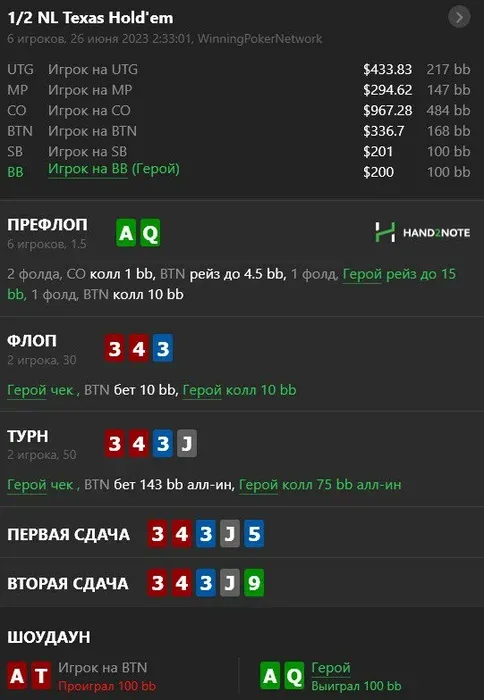
I'm doing worse offline with hero calls. I threw strong hands into the open several times, and it turned out that I was not even close to being right.

















